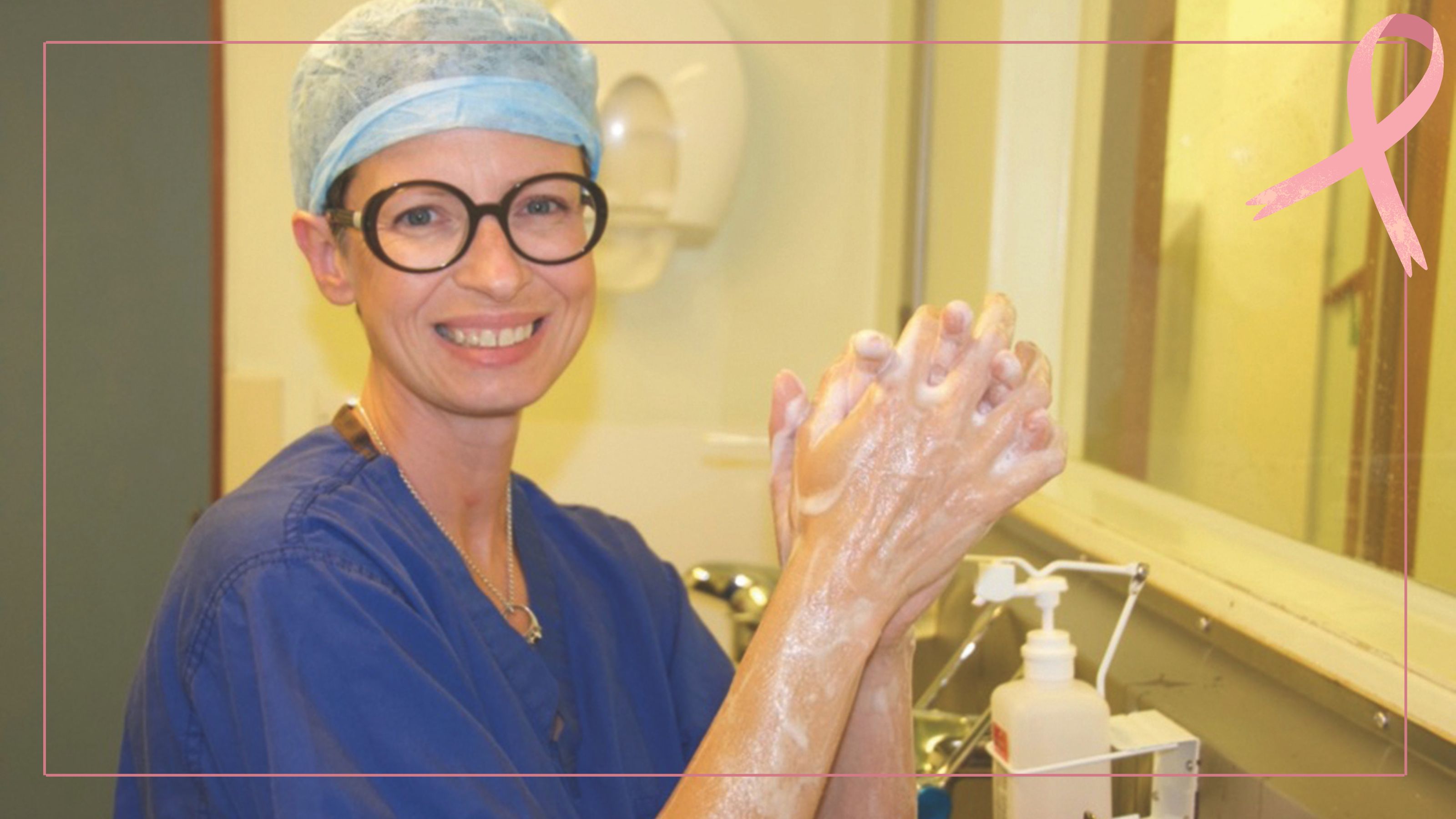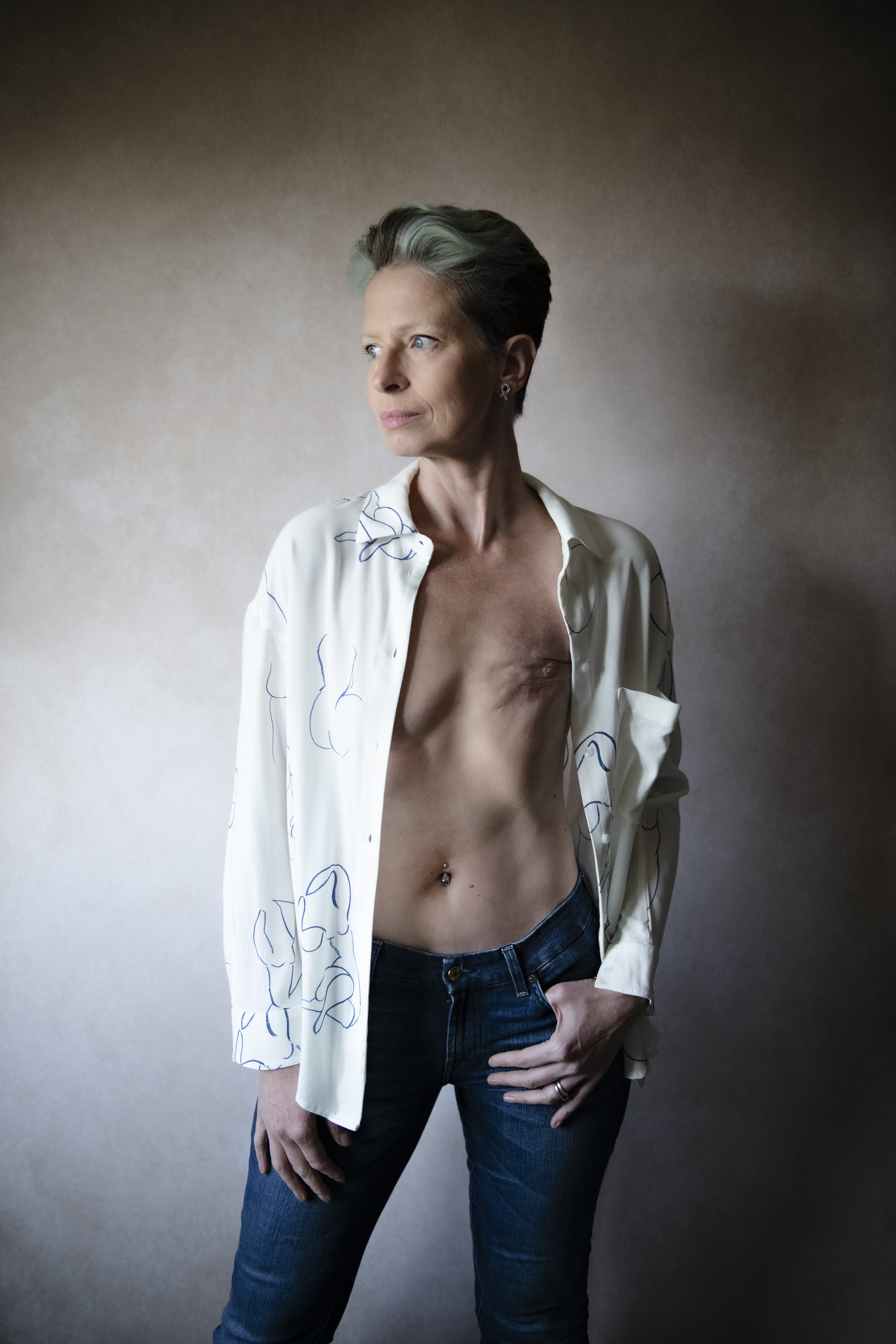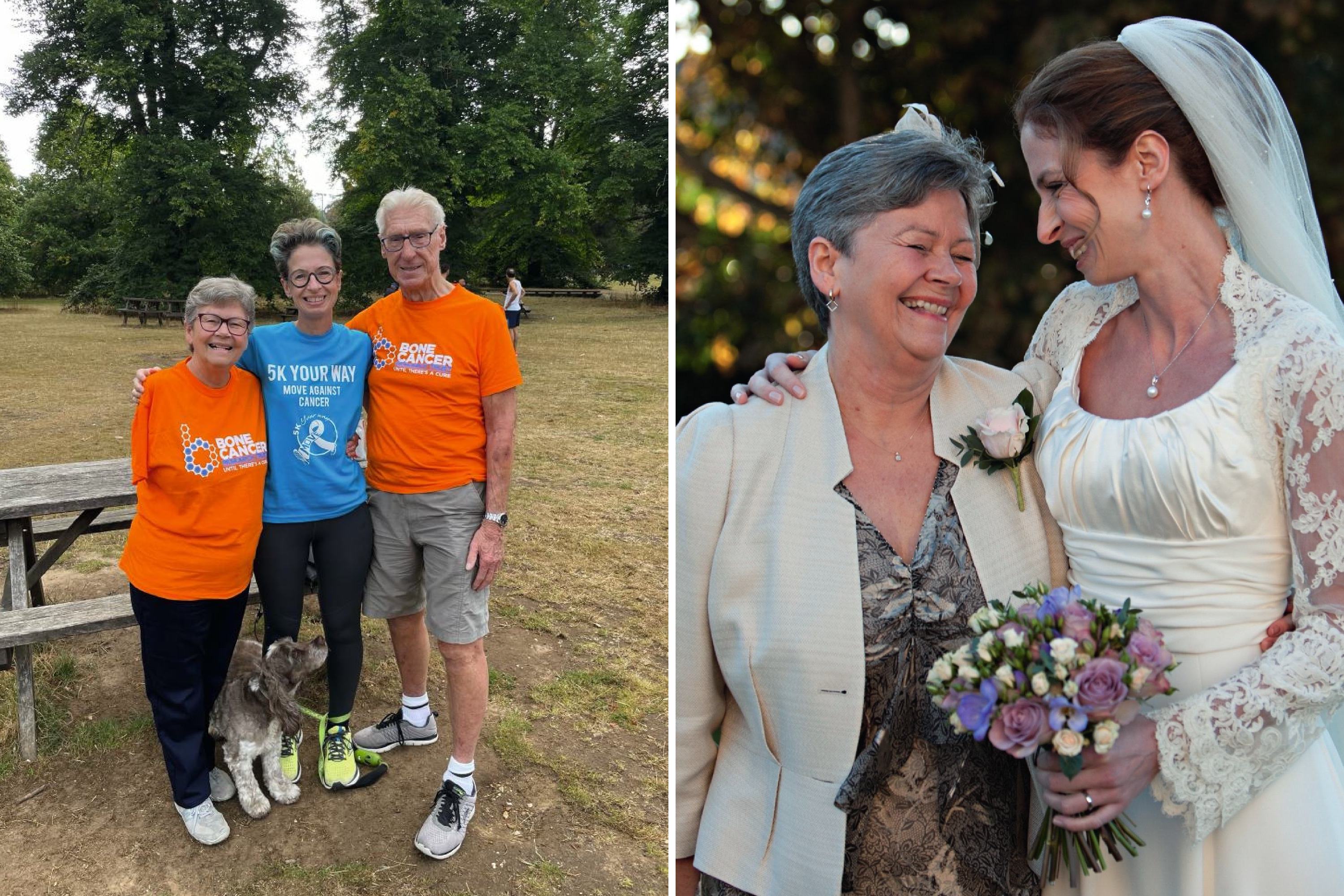
Working as a consultant breast surgeon, it was my responsibility to tell around 10 women a week that they had cancer. It was an emotionally intense job and could feel like you’re being paid to break women. Sometimes, particularly after seeing young women, I’d cry in the toilets. There’s no counselling and very little training for breaking bad news. It’s just part of the job – until it happens to you.
In 2015, aged 40, I found a lump. Despite my job, I never regularly checked my breasts, a fact that seems crazy now, but I simply assumed that it wasn’t going to happen to me. In the past, I’d had two cysts that were benign and a normal mammogram nine months earlier. Still, I decided to get checked just to be safe. I didn’t want my team at work to see me, so I went to a different hospital.
When I saw the results of my ultrasound on the screen, I knew before I was told that it was cancer. When I was told the news, I realised how unhelpful the phrases that clinicians use were, such as ‘it’s just a small cancer’ or ‘it’s a good one to have, as there are so many options’. No cancer is good. No one is lucky to have it.
"I felt I should know how to treat my own side effects"
A week later, I was having chemotherapy for a stage three breast cancer. I had gone from clinician to patient – and I was terrified. In this case, knowledge was not power: I knew too much. My brain was full of information that I wished I could forget.
I was a terrible patient during chemo. I sat at home and suffered, crying in pain instead of asking for help. As a doctor, I felt I should know how to treat my own side effects, which included flu-like aching, constipation, dry, cracked skin and indigestion. My mum and my husband, Dermot, also a surgeon, were wonderfully supportive, but allowing other people to help me was difficult.
Chemotherapy was followed by a nipple-sparing mastectomy and implant reconstruction. I felt guilty that vanity was a reason for the reconstruction, even though for years I had told patients that was perfectly reasonable. I couldn’t imagine not having cleavage.
Unfortunately, the cancer had spread to my lymph nodes. Therefore, I needed more surgery as well as radiotherapy, and was started on a drug called tamoxifen, which led to instant menopause and no libido.
Desperate to take back some element of control, I decided to post about my diagnosis on Twitter. It was the best thing I could have done, because it reminded me I wasn’t alone. I also connected with a group of doctors going through cancer treatment, which was invaluable.
Feeling broken

In 2017, I returned to work. Early on, I remember seeing a colleague tell a woman she had breast cancer. The woman was holding on to her husband and as they both crumpled, it triggered intense flashbacks. The first patient I had to break bad news to was younger than me, and when she broke down, I wanted to say, ‘Yes, this is s***, I get it,’ but I was told I had to be positive. Knowing how she felt, it was so hard to maintain my professional mask.
In July 2018, my cancer came back on my chest wall. It meant more surgery – this time going flat – and radiotherapy. My ovaries were removed, making me infertile, and I had hormonal therapy. As if that wasn’t enough, I couldn’t move my left shoulder fully, which meant I was forced to take ill-health retirement.
"It took three months before I looked at my scar in the mirror"
I fell into depression. Being a surgeon was my identity, and I had no reason to get out of bed. Alone with my dog, Hunter, in the daytime in a tiny village, I missed making a difference. I didn’t have any hobbies because my life had been my work. I was broken.
It took three months before I looked properly at my scar in the mirror. I didn’t want Dermot to touch me. I didn’t feel sexy, feminine or aroused, and I think part of that is having no sex hormones. I would get undressed for bed, turning away from him, and immediately switching the lights off. I knew I had to rebuild my mental health and come to terms with my body.
A new purpose

Around that time, I started going to the gym: exercise can reduce the risk of breast cancer by 20% and reduce the risk of it coming back by 30%. Getting fit helped me to own my body again. I felt grateful for everything it had got me through and I no longer cared how other people saw it. It’s not how I would like to look. But it’s who I am and I’ve accepted that I can’t change it.
The other comforting tool I used was my ‘jar of joy’. Each time a small thing brought me happiness, I’d write it down on a piece of paper and put it in the jar. This could be anything from going to the cinema with Dermot to wild swimming, making sourdough bread, seeing baby ducklings or putting blue streaks in my hair, which had grown back grey and wiry. Recognising these moments helped to boost my mood.
Over the next five years, I carved out a new life for myself – writing a book, starting a podcast about breast cancer, and sharing my experiences through talks and social media. I had discovered a new purpose, a way to give back and use my experiences for good.
But in December 2022, my world fell apart again when I lost my mum to cancer. The shock was intense and overwhelming – we were so close, and she had always been my greatest support. I developed intense survivor’s guilt, constantly thinking ‘it should have been me’. I had been so sure I would die before her.
Six months later, I noticed a spot above my mastectomy scar. I knew that it was a local recurrence on the skin. My cancer was back. Going through more surgery to remove that bit of skin and targeted therapy without my mum by my side was tough. Still grieving her loss, I had to remind myself that Mum’s ending is not necessarily mine.
Live life to its fullest
Liz's latest book The Cancer Roadmap: New Science-Backed Guide to Your Cancer Treatment Path breaks down the latest research to give the facts you need to make informed treatment decisions for you or your loved one.
I have just turned 50, an age I never imagined I’d reach after being diagnosed just before my 41st birthday. I miss being a surgeon, but I feel stronger and happier. I’m currently healthy, but I’m also realistic and know that cancer can come back. In the meantime, I’m determined to live life to its fullest.
Breast cancer awareness months and events can be hard for anyone newly diagnosed, because breast cancer is in your face. If that’s you and you’re struggling, I’d recommend avoiding social media. But the most important advice I can share is for women to check their breasts regularly and to go for mammograms.
Only a third of women are going for their first mammogram in some places in the UK, yet early detection can make all the difference. There’s no diet that can cure cancer or stop it coming back, despite what you might see in some places online.
Recent research is incredible. In the last 10 years, there have been 20 new breast cancer drugs released, and researchers are developing liquid biopsies to pick up breast cancer at an early stage. Personalised medicine is also coming in, with immunotherapy drugs designed to treat people for their specific mutations. There are 50 or 60 different types of breast cancer, so I don’t think we’ll ever cure it completely, but I’m excited to see where we’ll be in another five years.
Ultimately, my message is this: breast cancer can make you feel that your world is over, but you will get through this. There is so much help and information to help you get your life back. You are not alone.
If you notice changes in your breasts, consult with your GP or healthcare professional.
This article first appeared in the October 2024 issue of woman&home magazine. Subscribe to the magazine for £6 for 6 issues.







